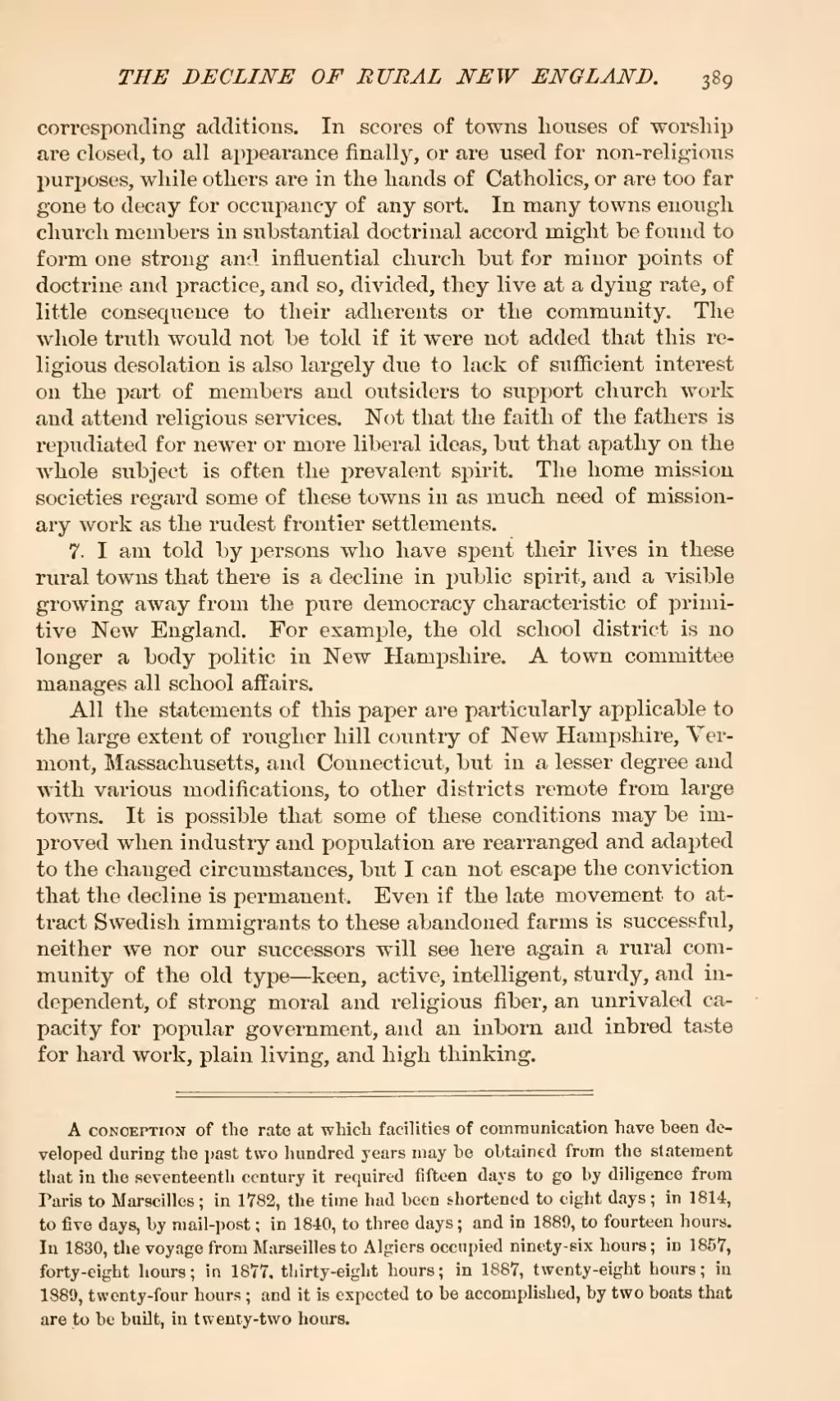corresponding additions. In scores of towns houses of worship are closed, to all appearance finally, or are used for non-religious purposes, while others are in the hands of Catholics, or are too far gone to decay for occupancy of any sort. In many towns enough church members in substantial doctrinal accord might be found to form one strong and influential church but for minor points of doctrine and practice, and so, divided, they live at a dying rate, of little consequence to their adherents or the community. The whole truth would not be told if it were not added that this religious desolation is also largely due to lack of sufficient interest on the part of members and outsiders to support church work and attend religious services. Not that the faith of the fathers is repudiated for newer or more liberal ideas, but that apathy on the whole subject is often the prevalent spirit. The home mission societies regard some of these towns in as much need of missionary work as the rudest frontier settlements.
7. I am told by persons who have spent their lives in these rural towns that there is a decline in public spirit, and a visible growing away from the pure democracy characteristic of primitive New England. For example, the old school district is no longer a body politic in New Hampshire. A town committee manages all school affairs.
All the statements of this paper are particularly applicable to the large extent of rougher hill country of New Hampshire, Vermont, Massachusetts, and Connecticut, but in a lesser degree and with various modifications, to other districts remote from large towns. It is possible that some of these conditions may be improved when industry and population are rearranged and adapted to the changed circumstances, but I can not escape the conviction that the decline is permanent. Even if the late movement to attract Swedish immigrants to these abandoned farms is successful, neither we nor our successors will see here again a rural community of the old type—keen, active, intelligent, sturdy, and independent, of strong moral and religious fiber, an unrivaled capacity for popular government, and an inborn and inbred taste for hard work, plain living, and high thinking.
